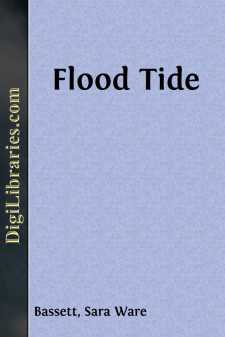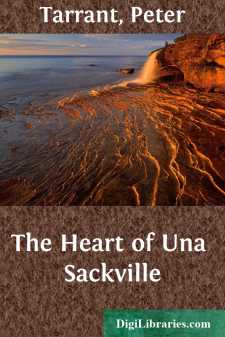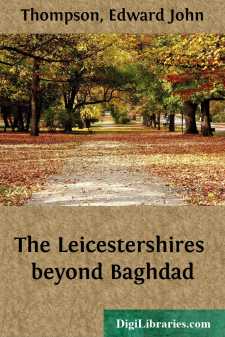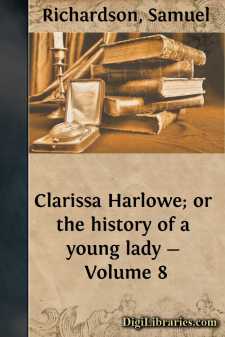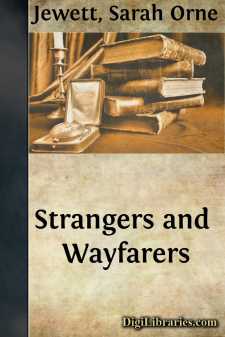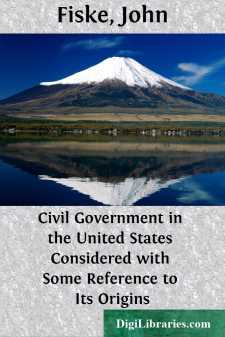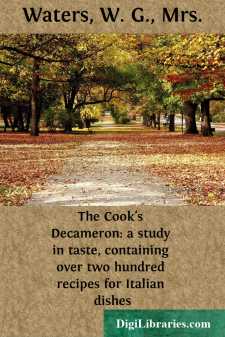Categories
- Antiques & Collectibles 13
- Architecture 36
- Art 48
- Bibles 22
- Biography & Autobiography 813
- Body, Mind & Spirit 142
- Business & Economics 28
- Children's Books 17
- Children's Fiction 14
- Computers 4
- Cooking 94
- Crafts & Hobbies 4
- Drama 346
- Education 46
- Family & Relationships 57
- Fiction 11829
- Games 19
- Gardening 17
- Health & Fitness 34
- History 1377
- House & Home 1
- Humor 147
- Juvenile Fiction 1873
- Juvenile Nonfiction 202
- Language Arts & Disciplines 88
- Law 16
- Literary Collections 686
- Literary Criticism 179
- Mathematics 13
- Medical 41
- Music 40
- Nature 179
- Non-Classifiable 1768
- Performing Arts 7
- Periodicals 1453
- Philosophy 64
- Photography 2
- Poetry 896
- Political Science 203
- Psychology 42
- Reference 154
- Religion 513
- Science 126
- Self-Help 84
- Social Science 81
- Sports & Recreation 34
- Study Aids 3
- Technology & Engineering 59
- Transportation 23
- Travel 463
- True Crime 29
Sort by:
THE WEAVER AND HIS FANCIES Willie Spence was a trial. Not that his personality rasped society at large. On the contrary his neighbors cherished toward the little old man, with his short-sighted blue eyes and his appealing smile, an affection peculiarly tender; and if they sometimes were wont to observe that although Willie possessed some common sense he was blessed with uncommon little of it, the...
more...
by:
Peter Tarrant
Chapter One. May 13th, 1895. Lena Streatham gave me this diary. I can’t think what possessed her, for she has been simply hateful to me sometimes this last term. Perhaps it was remorse, because it’s awfully handsome, with just the sort of back I like—soft Russia leather, with my initials in the corner, and a clasp with a dear little key, so that you can leave it about without other people seeing...
more...
INTRODUCTION The present volume has been published with two main objects. The writer has attempted to exhibit, in outline, the leading features of the international history of the two countries which, in 1707, became the United Kingdom. Relations with England form a large part, and the heroic part, of Scottish history, relations with Scotland a very much smaller part of English history. The result has...
more...
THE CONFUSED DAWN. YOUNG MAN What are the Vision and the CryThat haunt the new Canadian soul? Dim grandeur spreads we know not whyO'er mountain, forest, tree and knoll, And murmurs indistinctly fly.— Some magic moment sure is nigh.O Seer, the curtain roll! SEERThe Vision, mortal, it is this— Dead mountain, forest, knoll and treeAwaken all endued with bliss, A native land—O...
more...
PREFACE The Mesopotamian War was a side-show, so distant from Europe that even the tragedy of Kut and the slaughter which failed to save our troops and prestige were felt chiefly in retrospect, when the majority of the men who suffered so vainly had gone into the silence of death or of captivity. When Maude's offensive carried our arms again into Kut, and beyond, to Baghdad, interest revived; but...
more...
LETTER I MISS HOWE, TO MISS CLARISSA HARLOWE YARMOUTH, ISLE OF WIGHT, MONDAY, AUG. 7. MY DEAREST CREATURE, I can write but just now a few lines. I cannot tell how to bear the sound of that Mr. Belford for your executor, cogent as your reasons for that measure are: and yet I am firmly of opinion, that none of your relations should be named for the trust. But I dwell the less on this subject, as I hope...
more...
A WINTER COURTSHIP. The passenger and mail transportation between the towns of North Kilby and Sanscrit Pond was carried on by Mr. Jefferson Briley, whose two-seated covered wagon was usually much too large for the demands of business. Both the Sanscrit Pond and North Kilby people were stayers-at-home, and Mr. Briley often made his seven-mile journey in entire solitude, except for the limp leather...
more...
by:
John Fiske
CHAPTER I. TAXATION AND GOVERNMENT. In that strangely beautiful story, "The Cloister and the Hearth," in which Charles Reade has drawn such a vivid picture of human life at the close of the Middle Ages, there is a good description of the siege of a revolted town by the army of the Duke of Burgundy. Arrows whiz, catapults hurl their ponderous stones, wooden towers are built, secret mines are...
more...
by:
W. G. Waters
Preface Montaigne in one of his essays* mentions the high excellence Italian cookery had attained in his day. "I have entered into this Discourse upon the Occasion of an Italian I lately receiv'd into my Service, and who was Clerk of the Kitchen to the late Cardinal Caraffa till his Death. I put this Fellow upon an Account of his office: Where he fell to Discourse of this Palate-Science, with...
more...
by:
R. W. Campbell
A NOTABLE QUARTETTE WANTED.—One Thousand cheerful toughs to enlist for the period of the war in the Kangaroo Marines. Boosers, scrimshankers and loonies barred. Gents with big waists and little hearts are warned off. Sharpshooters on the wallaby, able to live on condensed air and boiled snakes, are cordially invited. No parson's references are required. Jackaroos, cattlemen, rouseabouts,...
more...


